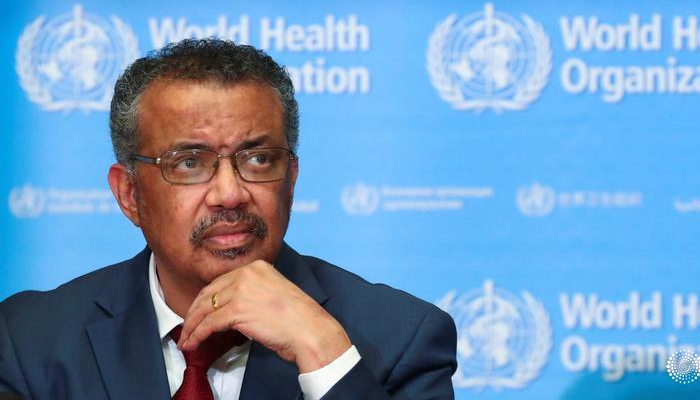Coronavirus first vaccine 'could be ready in 18 months': WHO chief Tedros
WHO Chief Tedros Adhanom Ghebreyesus says 'Covid-19' would be the new official name for the deadly coronavirus
February 11, 2020

GENEVA: The first vaccine for the novel coronavirus "could be ready in 18 months", World Health Organisation chief Tedros Adhanom Ghebreyesus told reporters here during a briefing on Tuesday.
Ghebreyesus further explained to the media that "Covid-19" would be the new official name for the deadly coronavirus that was first identified in China on December 31. "We now have a name for the disease and it's Covid-19," he said.
The WHO chief explained that the "co" stood for "corona," "vi" for "virus," and "d" for "disease".
Coronavirus was earlier temporarily called "2019-nCoV acute respiratory disease," whereas China's National Health Commission had said it was calling it "novel coronavirus pneumonia" — or NCP — in the meantime.
He explained that calling the coronavirus Covid-19 would help stop usage of "other names that can be inaccurate or stigmatizing". It was chosen in order to avoid references to a specific geographical location, animal species or group of people.
Moreover, the United Nations' Crisis Management Team had been activated and would be led by WHO Executive Director Health Emergencies Programme Dr Mike Ryan.
The UN Crisis Management Team would assist the WHO in focusing on health response whereas others institutions can use their expertise with regard to various other implications of the coronavirus outbreak.
Earlier in the day, he welcomed some 400 leading scientists to a global research and innovation forum in the Swiss capital focused on mobilising worldwide action as a response to the coronavirus.
"We need collective knowledge, insight and experience to answer the questions we don’t have answers to, and to identify the questions we may not even realize we need to ask to stop the #2019nCoV outbreak," he added.
To those under the lock-down in China, he said he and the participants "stand with you in solidarity, and we wish you courage, patience, success and good health in these extremely trying circumstances".
"As of 6am Geneva time this morning, there were 42,708 confirmed cases reported in China, and tragically we have now surpassed 1000 deaths - 1017 people in China have lost their lives to this outbreak.
"Outside China, there are 393 cases in 24 countries, with 1 death, in the Philippines," he added.
Ghebreyesus stressed that there was no vaccine at present to prevent this outbreak and no proven therapeutics to treat them but that there was WHO R&D Blueprint — a system established following the Ebola epidemic in Africa — to develop drugs and vaccines before the epidemics could spread around the world.
Tedros said he saw a "realistic chance" of stopping the outbreak. While vaccine development was one portion of the WHO's research agenda, he said it was important to remember that "we are not defenceless".
"We have to use the current window of opportunity to hit hard and stand in unison to fight this virus in every corner. If we don't we could have far more cases and far higher costs on our hands."
—Additional reporting from AFP









